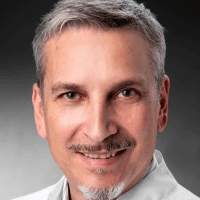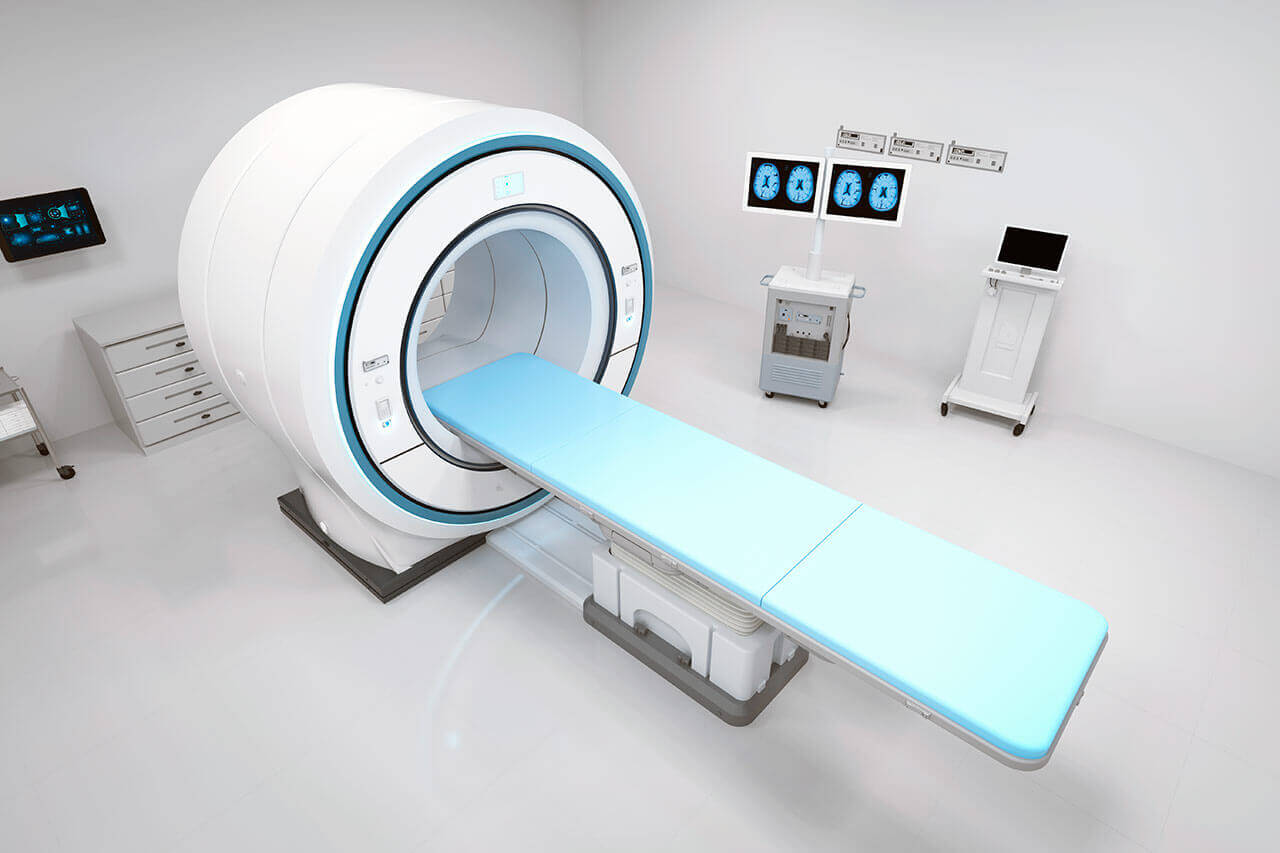
The program includes:
- Initial presentation in the clinic
- clinical history taking
- review of medical records
- physical examination
- laboratory tests:
- complete blood count
- general urine analysis
- biochemical analysis of blood
- inflammation indicators (CRP, ESR)
- indicators blood coagulation
- neurological examination
- functionality x-ray
- CT/MRI scan
- neuropsychological tests (on indications):
- ENMG (electroneuromyography)
- EEG (electroencephalography)
- SEPs (somatosensory evoked potentials)
- VEPs (visually evoked potentials)
- BAEP tests (brainstem auditory evoked potential)
- preoperative care
- treatment of the cavernoma with coiling
- 1-day intensive care unit stay
- postoperative MRI control
- symptomatic treatment
- control examinations
- the cost of essential medicines and materials
- nursing services
- full hospital accommodation
- developing of further guidance
Required documents
- Medical records
- MRI/CT scan (if available)
- MR/CT-angiography (if available)
Service
You may also book:
 BookingHealth Price from:
BookingHealth Price from:
About the department
The Department of Adult and Pediatric Diagnostic, Interventional Neuroradiology at the International Neuroscience Institute Hannover provides the full range of services in the areas of its specialization. The department's medical team provides high quality diagnostic tests to assess the state of the central and peripheral nervous system, as well as modern interventional image-guided procedures on the blood vessels of the brain. The department has a Siemens 1.5 T MRI scanner, a device for functional magnetic resonance imaging, a 128-slice computed tomography scanner, a biplane angiography system, a device for digital subtraction angiography and 3D rotational angiography system, which allow the doctors to comprehensively examine the patient's nervous system and detect the most insignificant pathological changes. All of these devices are also used during image-guided therapeutic interventional procedures. For example, facet joint block involves CT-guided injections of painkillers, which ensures the safety of the procedure. The department uses a modern picture archiving and communication system, with the help of which all doctors from other departments of the hospital have access to the results of patient diagnostic examinations. In addition, this system provides access to the diagnostic results to doctors from partner hospitals in especially complex clinical cases, when the patient needs to get a second opinion.
The department is headed by PD Dr. med. Gerasimos Baltsavias. The specialist enjoys an excellent reputation all over the world and has an impressive clinical experience in his field of expertise. The doctor underwent his professional training in leading medical centers in Austria, Great Britain and the USA, and for almost 10 years he worked in the Department of Neuroradiology at the University Hospital Zurich, which is considered one of the best in Europe.
When conducting diagnostics, the specialists use the latest generation CT and MRI machines. This guarantees a minimum dose of radiation that does not cause harm to the patient's health. Contrast enhancement is often used during the diagnostic examinations. In cooperation with the University Hospital Magdeburg, the department provides functional magnetic resonance imaging, the purpose of which is to assess hemodynamics (changes in blood flow activities) when certain regions of the brain are activated. The diagnostic method is based on the fact that the increased activities of a particular region of the brain result in the increased blood flow to this region, which means that the parameters of blood flow in the bloodstream are also changed. This type of diagnostic examination allows obtaining valuable diagnostic information in case of neurodegenerative diseases, movement disorders, and can also be used when planning surgery to remove brain tumors. Functional MRI helps avoid damage to the motor and speech centers during surgery. The department's specialists also perform digital subtraction angiography, which allows high-precision imaging of small diameter blood vessels.
State-of-the-art CT, MRI and angiography devices are also used in the department for image-guided therapeutic procedures. Clinical practice focuses on endovascular treatment of cerebral aneurysms, arteriovenous malformations of the brain, some types of tumors of the nervous system and back pain (block). Along with the treatment of vascular malformations in adults, the task of the department's specialists is the treatment of vein of Galen aneurysm, which is a rare congenital arteriovenous malformation of the brain in children. This malformation can be diagnosed in utero. Due to the lack of physiological connection between the capillaries, the baby's heart is exposed to increased stress, which can lead to impaired cardiac function. Without timely treatment, pathology can lead to cardiac arrest or the development of hydrocephalus, progressive brain dysfunction and other severe complications. To close the communication between the vein and arteries, the doctors of the department use the finest microcatheter and a platinum coil, as well as special glue.
The department's range of diagnostic and therapeutic services includes:
- Diagnostic tests
- Computed tomography (CT)
- Magnetic resonance imaging (MRI)
- Functional magnetic resonance imaging (fMRI)
- Digital subtraction angiography and 3D rotary angiography
- Therapeutic procedures
- Endovascular treatment of brain aneurysms
- Endovascular treatment of arteriovenous malformations of the brain and spinal cord
- Endovascular treatment of cerebral aneurysms
- Endovascular treatment of arteriovenous malformations of the brain and spinal cord
- Thrombectomy for acute ischemic stroke
- Endovascular treatment of arteriovenous shunting and vein of Galen aneurysm in newborns and young children
- Endovascular treatment of carotid and intracranial stenosis
- Endovascular treatment of hemangiomas and vascular malformations in the head, face and neck
- Endovascular treatment of vascular tumors in the brain, skull base and neck (for example, meningiomas, hemangioblastomas, glomus tumors, neuromas, juvenile angiofibromas)
- Other medical services
Curriculum vitae
PD Dr. med. Gerasimos Baltsavias is the Head of the Department of Adult and Pediatric Diagnostic, Interventional Neuroradiology at the International Neuroscience Institute Hannover. The doctor is an internationally recognized specialist in the field of endovascular treatment of vascular diseases of the head and neck.
Dr. Baltsavias underwent his basic training in Neurosurgery at a General Hospital in Athens, Greece (1997). This was followed by clinical training at several leading medical centers, including the Department of Neurosurgery at the University Hospital Vienna (1997-1998), the Department of Neuroradiology at the Beth Israel Medical Center in New York (1998), the Department of Neuroradiology at the John Radcliffe Hospital at the University of Oxford (1999), Department of Neurosurgery at the Christian Doppler Medical Center in Salzburg (2000). From 2001 to 2008, Dr. Gerasimos Baltsavias headed the Department of Neuroradiology at the European Medical Center Interbalkan, Thessaloniki, Greece. During the same period of time (2005-2007), he completed a Master's Course in Neuroradiology. In 2007, the specialist also completed his dissertation on vertebrobasilar aneurysms at the Department of Neuroradiology at the Hôpital Lariboisière, Paris, France, after which he received an international Diplome Inter Universitaire in Neuroradiology at the University of Paris-South 11 and the University of Mahidol (2007).
In 2009, Dr. Baltsavias was appointed Senior Physician in the Department of Neuroradiology at the University Hospital Zurich. While working in this department, he defended his doctoral dissertation (2011). Habilitation at the Faculty of Medicine of the University of Zurich followed in 2016. The research work was devoted to the treatment of dural arteriovenous fistulas. From that time until October 2017, Dr. Gerasimos Baltsavias served as Head of the Section of Interventional Neuroradiology at the Department of Neuroradiology at the University Hospital Zurich, Switzerland. In November 2017, the specialist took the position of Chief Physician of the Department of Adult and Pediatric Diagnostic, Interventional Neuroradiology at the International Neuroscience Institute Hannover.
Dr. Gerasimos Baltsavias has repeatedly participated in various international seminars, symposia and congresses as a speaker. He is a reviewer for several international medical journals: Neurology, American Journal of Neuroradiology, Neurosurgical Review, Clinical Neurology and Neurosurgery, Interventional Neuroradiology, European Journal of Neurology, etc.
In addition, the specialist is a member of the World Federation of Interventional and Therapeutic Neuroradiology, the European Association of Neurosurgical Societies, the American Congress of Neurological Surgeons, the Swiss Society of Neuroradiology and the Hellenic Neurosurgical Society.
Photo of the doctor: (c) International Neuroscience Institute®
About hospital
The International Neuroscience Institute Hannover is an advanced highly specialized hospital that provides patients with the diagnostics of diseases of the nervous system and further required treatment. The key areas of competence of the medical facility include neurology, neurosurgery and neuroradiology. In addition, the hospital has laboratories for science experiments and clinical research. The hospital was founded in 1998 by Professor of Neurosurgery Majid Samii and over the time of its clinical activities has gained an impeccable reputation not only in Germany, but also far beyond its borders. The medical complex has unique medical equipment, which allows the specialists to treat diseases of the brain and spinal cord, spine and peripheral nerves using innovative therapeutic methods, many of which are not available in developing countries.
The presence in the hospital of such high-tech devices as a 3 Tesla MRI scanner, a 128-slice CT scanner, a 1.5 Tesla intraoperative MRI scanner, an intraoperative 32-slice CT scanner, a biplane angiography system and intraoperative neuromonitoring systems allows the doctors to accurately determine the nature of pathological changes in the nervous system, as well as reliably monitor each surgical manipulation in order to exclude damage to important functional regions of the brain and spinal cord. The hospital performs innovative stereotactic radiosurgery offered by only a few leading medical centers in the world.
The hospital is also proud of its medical staff, consisting of leading German specialists in neurosurgery, neurology, diagnostic and interventional neuroradiology, internal medicine, oncology, otolaryngology, ophthalmology, orthopedics and other medical disciplines. The work of an interdisciplinary medical team allows the doctors to provide the most effective treatment, taking into account all the clinical features of a particular neurological disorder. The doctors of the medical complex always strive to establish a trusting contact with the patient, devote enough time to personal communication with their patients and always try to support them on their way to recovery. The health of the patient is the main value for the hospital's medical team, and therefore all the doctors' efforts are aimed at achieving complete recovery or long-term remission in case of incurable diseases of the nervous system.
The hospital is notable for its unusual architecture – the shape of a huge building made of glass and metal resembles a human brain. The hospital has a cozy and pleasant atmosphere. It is focused on the patients' comfort, and therefore all diagnostic and therapeutic rooms are designed in such a way that a person does not feel like he is in the hospital. The interior of the hospital is more like a modern comfortable hotel
Photo: (с) depositphotos
Accommodation in hospital
Patients rooms
The patients of the International Neuroscience Institute Hannover live in single, double and triple rooms with all the necessary amenities. The design of the rooms gives patients the impression that they are in a top-class hotel, but not at the hospital. All patient rooms have modern furniture. They are made in pleasant light colors and have large windows offering scenic views of the nearby park. Each patient room has an ensuite bathroom with shower and toilet. The patients with disabilities are offered rooms with a specially equipped bathroom. All patient rooms have TV and telephone. In addition, if desired, the patient and his accompanying person can live in modern apartments with an exclusive design.
The medical facility has beautiful meeting rooms for family and friends. These rooms are decorated with works of art, including paintings and sculptures. It is worth noting that the hospital is located near a large park, which is ideal for walking when free from therapeutic procedures.
Meals and Menus
The patients of the hospital are offered delicious meals in the spacious and cozy cafe of the medical facility. The menu features German and Oriental cuisine, as well as kosher dishes. When cooking, chefs use only high-quality and fresh products, while their skills allow creating incredibly delicious culinary masterpieces.
Further details
Standard rooms include:
Accompanying person
During the inpatient program, the accompanying person can live with the patient in a patient room or a hotel of his choice. Our managers will help you choose the most suitable option.
Hotel
During the outpatient program, the patient can stay at the hotel of his choice. Our managers will help you choose the most suitable option.




